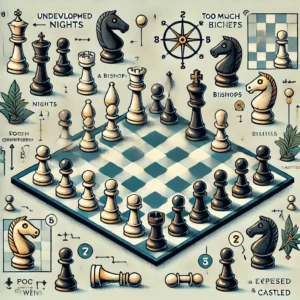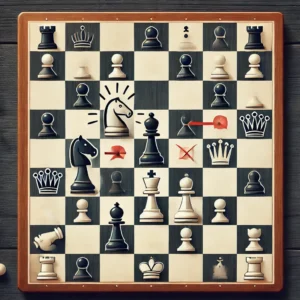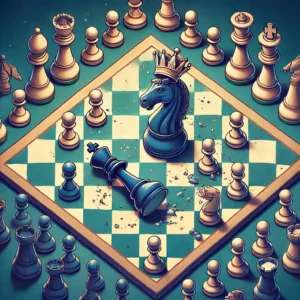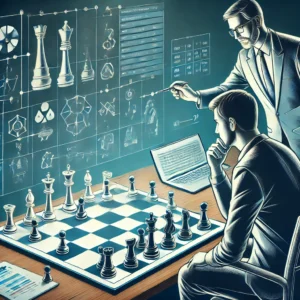Introduction
Chess, renowned for its strategic depth and intellectual challenge, is a game where every move counts. For beginners, navigating the complexities of chess can be both exhilarating and daunting. Recognizing and avoiding common mistakes early on is crucial for developing a solid foundation in the game. This guide explores key beginner errors in chess and provides valuable insights on how to learn from these mistakes to elevate your gameplay to the next level.
Key Takeaways
- Identify Common Errors: Recognize typical mistakes beginners make in chess to avoid them effectively.
- Learn and Adapt: Understand the importance of learning from mistakes to improve your chess skills.
- Practical Strategies: Discover actionable tips to enhance your gameplay and progress faster in chess.
Typical Errors to Avoid
Chess Openings

Beginners often struggle with chess openings, where mistakes can set a negative tone for the rest of the game:
- Neglecting Development: Failing to prioritize piece development can lead to cramped positions and lost tempo.
Example: Playing too many pawn moves instead of developing knights and bishops. - Ignoring Opening Principles: Not following basic opening principles like controlling the center, castle early, and avoiding premature pawn moves.
Example: Advancing pawns without a clear plan, leaving pieces undeveloped.
Middlegame

- Overlooking Tactics: Missing tactical opportunities such as forks, pins, and skewers.
Example: Missing a simple knight fork that wins a pawn or piece. - Lack of Planning: Playing without a clear plan or failing to anticipate opponent’s threats.
Example: Moving pieces aimlessly without considering opponent’s responses.
Endgame

- King Activity: Failing to activate the king in the endgame, often leaving it passive.
Example: Keeping the king on the back rank instead of centralizing it. - Pawn Structure: Mishandling pawn endings, such as creating weaknesses or not understanding basic pawn endings.
Example: Advancing pawns without considering the resulting pawn structure.
How to Learn from Mistakes

Learning from mistakes is essential for improvement in chess. Here are practical strategies to analyze and grow from your errors:
- Review Your Games: After each game, review critical moments and identify where mistakes occurred. Use chess analysis tools or a coach’s guidance if available.
- Understand the Why: Don’t just note the mistake; understand why it was a mistake. Analyze alternative moves and their consequences.
- Study Master Games: Study games of strong players to understand typical plans and strategies. Recognize how they avoid common mistakes.
- Practice Tactics: Regularly solve tactical puzzles to improve pattern recognition and calculation skills. This helps avoid tactical oversights in real games.
- Keep a Chess Journal: Maintain a record of your games, noting mistakes and insights gained. Reflect on patterns and areas needing improvement.
Improving Your Game

To enhance your chess skills effectively, consider integrating these tips into your practice routine:
- Focus on Fundamentals: Master basic principles like piece development, center control, and king safety in openings.
- Build a Repertoire: Develop a repertoire of openings and understand the ideas behind each move to avoid early mistakes.
- Study Endgames: Invest time in studying fundamental endgames like king and pawn endings to improve endgame technique.
- Play Regularly: Practice regularly against opponents of varying skill levels to gain experience and exposure to different playing styles.
- Seek Feedback: Analyze games with stronger players or use computer analysis to gain insights into your play and areas for improvement.
Conclusion
By recognizing and actively avoiding common beginner mistakes in chess, you lay a strong foundation for rapid improvement and enjoyment of the game. Embrace the learning process, consistently analyze your games, and apply strategic insights to your gameplay. With dedication and perseverance, you’ll steadily progress from novice to a more skilled and confident chess player.
Visit our website chesstacticshub.com for more in-depth guides and resources to help you master every aspect of chess strategy.
